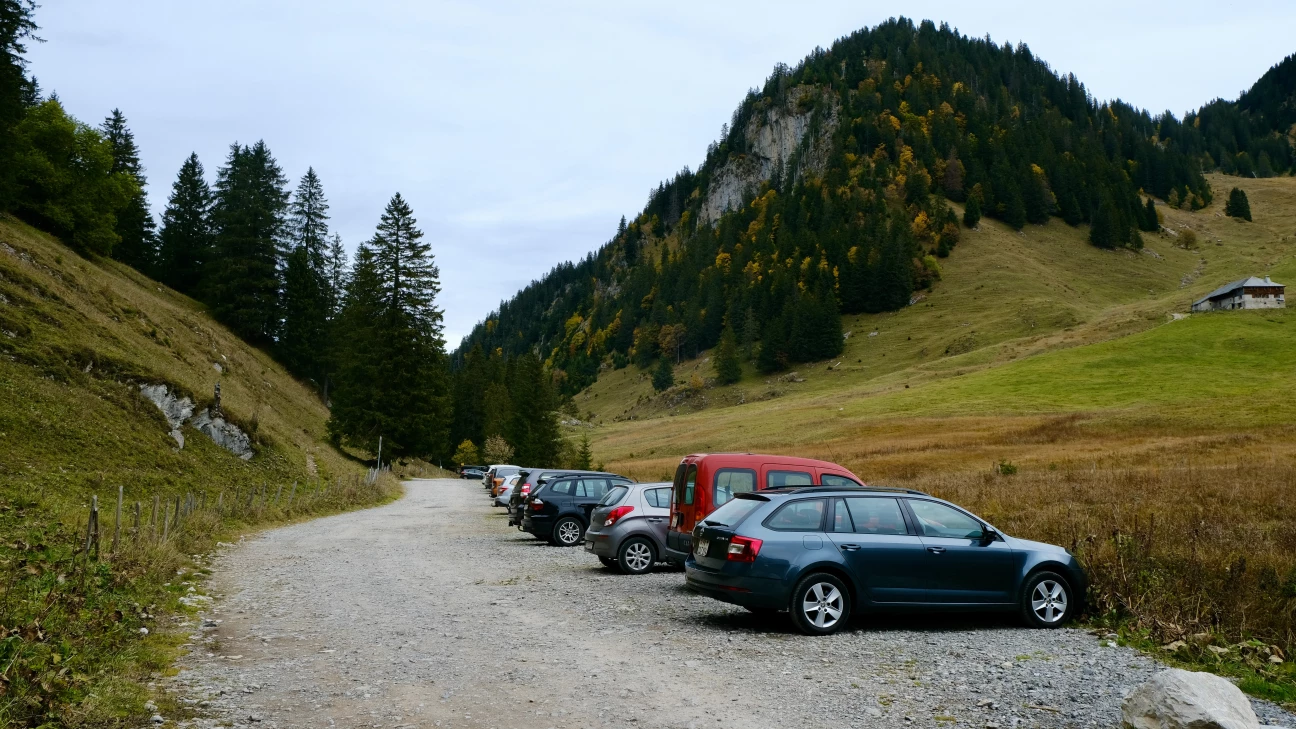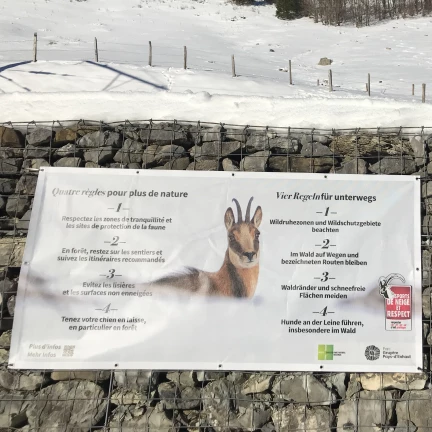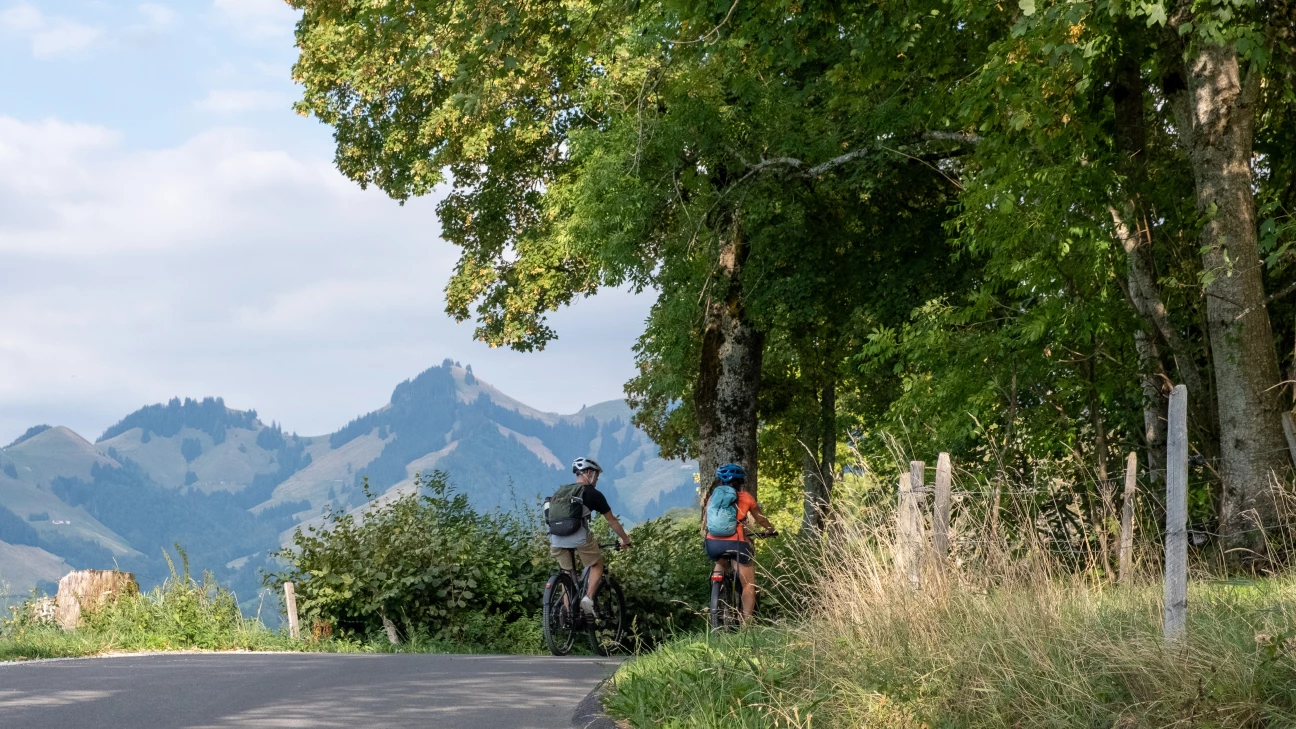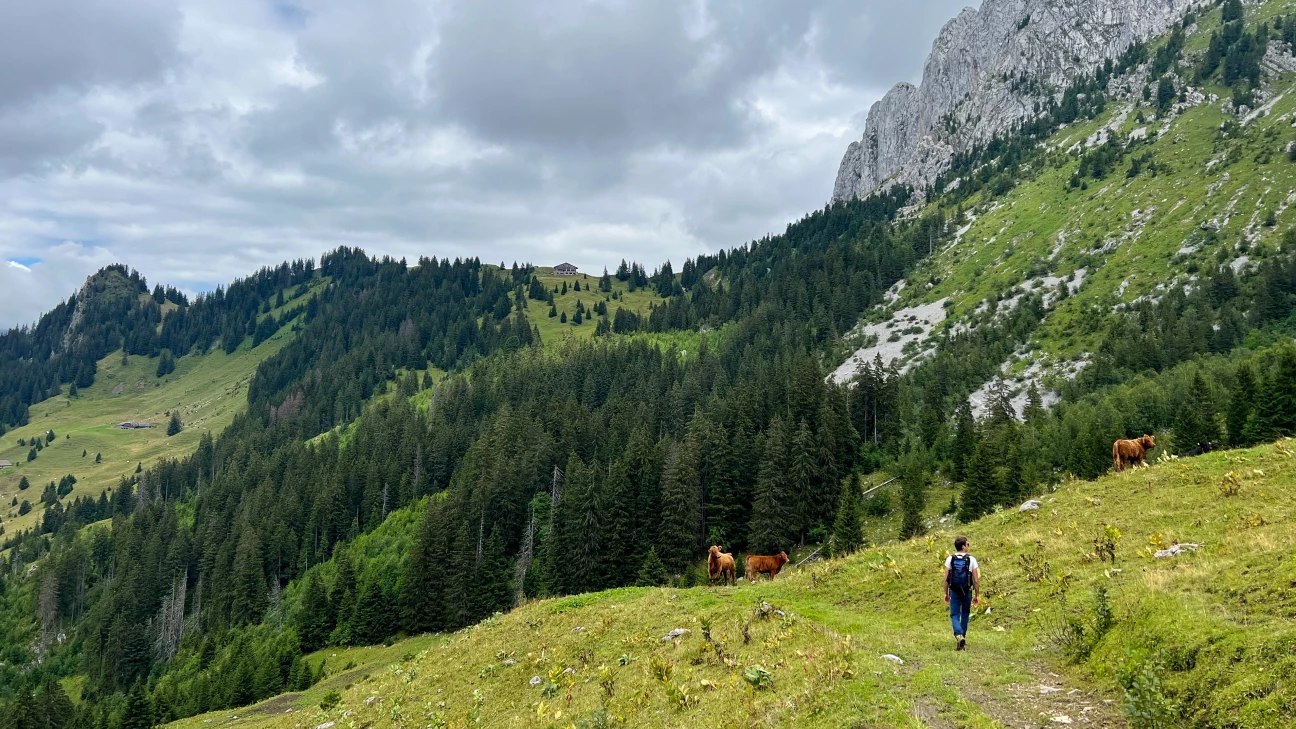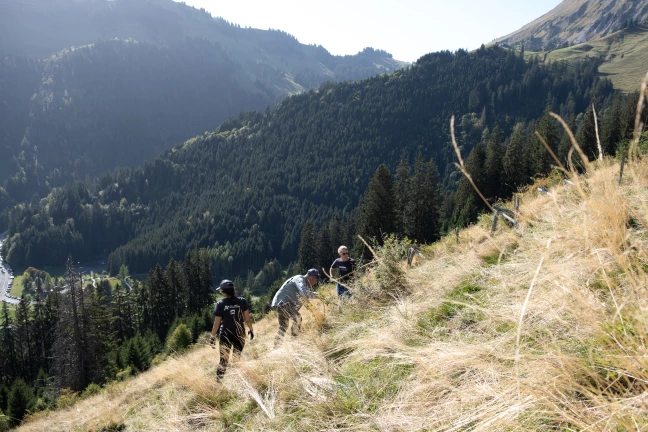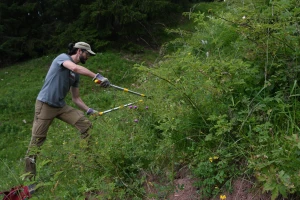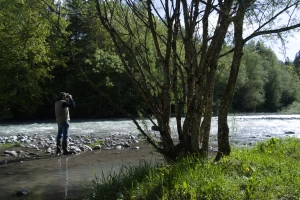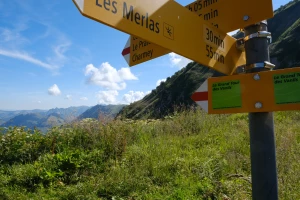
Towards strong sustainability in tourism
Suggestions
- famille
- agriculture
- mobilité
- énergie
- tourisme
- faune
- biodiversité
- vélo
- patrimoine
- randonnée
- produit
- alpage
What is strong sustainability?
Sustainability is a mode of development that aims to meet the needs of the present without compromising the ability of future generations to meet their own needs. To identify the various needs, sustainability relies on three pillars: the environment, the economy, and the social.
When we talk about strong sustainability, we assume that these three pillars are not interchangeable: we must respect planetary boundaries. In practical terms, this means that in a model of strong sustainability, it is inconceivable to deteriorate the environment while compensating with an economic gain, for example. The environment and living beings constitute the basic condition without which no social or economic achievements can exist, and therefore must be preserved as a priority.de base sans laquelle aucun acquis social ou économique ne peut exister, et doivent ainsi être préservés en priorité.
The impact of tourism
Positive impacts*
- Tourism contributes around 3% to Switzerland's Gross Domestic Product.
- In Switzerland, tourism generates over 150,000 full-time equivalent jobs.
- Many regions have developed thanks to the tourism sector, and are heavily dependent on it for the running of their local economies and many important infrastructures for their populations (shops, sports and cultural facilities, health, etc.).
- Tourism is an essential source of leisure and well-being for those who practise it, enabling them to discover the natural and cultural heritage of the region and beyond.
- Tourism helps people to discover other cultures, practices and ways of life. In this way, it contributes to respect for differences. It can also help to strengthen local culture and traditions (although there is a risk of folklorisation).
* Federal Office for Spatial Development ARE, 2012. Tourism and sustainable development. Good practices and courses of action.
Negative impact
- The tourism sector contributes to global warming through its significant generation of greenhouse gases, mainly caused by transportation. In Switzerland, transportation accounts for 75% of the CO2 emissions attributed to tourism.
- The construction of accommodations, ski lifts, and other types of infrastructure creates pressure on nature and the landscape.
- The presence of tourists in natural environments can cause significant disturbances to wildlife and flora, threatening the survival of certain species.
- If not well managed, tourism can also have negative impacts on the living conditions of residents (e.g., housing prices) and other users of the territory (farmers, hunters, etc.).
En prenant en compte l’impact global du tourisme et en considérant les enjeux environnementaux actuels, il est nécessaire d’opérer une transition vers un modèle de tourisme toujours plus durable. Le défi reste alors d’assurer le respect des conditions cadres nécessaires au maintien du vivant et à la limitation du réchauffement climatique, tout en maintenant des retombées socio-économiques positives pour les régions.
Considering the global impact of tourism and the current environmental challenges, it is necessary to transition to an increasingly sustainable tourism model. The challenge is to ensure compliance with the framework conditions necessary to maintain life and limit global warming, while still maintaining positive socio-economic benefits for the regions.
Major challenges for sustainable tourism in the region
To move towards greater sustainability, those involved in tourism must pay particular attention to the following issues:
- Promoting and preservingnatural and cultural heritage and living traditions.
- Disturbance to flora and fauna.
- Managing visitor flows.
- Creating added value for the regional economy.
- Accessibility of tourist attractions by public transport.
- Accessibility for disabled people.
- The origin of guests.
A few ways to make tourism more sustainable
Il existe de nombreuses pratiques qui permettent aux touristes de voyager de manière plus durable et respectueuse des destinations. Voici quelques bonnes pratiques :
- Privilégier les destinations peu lointaines, les transports publics et la mobilité douce.
- Favoriser la consommation de produits issus du terroir local et de services proposés par les prestataires du territoire.
- Respecter les zones protégées pour la faune et la flore.
- Rester sur les sentiers et itinéraires balisés.
- Privilégier les voyages moins fréquents mais de plus longue durée.
- En nature, emporter ses déchets avec soi.
There are many practices that enable tourists to travel in a more sustainable and respectful way. Here are a few good practices:
- Favour short-haul destinations, public transport and soft mobility.
- Favour the consumption of local products and services offered by local service providers.
- Respect protected areas for flora and fauna.
- Stay on marked paths and routes.
- Favour less frequent but longer trips.
- When out and about, take your rubbish with you.
Tourism and climate change
While tourism contributes to global warming with its high CO2 emissions, it is also a victim! Indeed, the global rise in temperatures is leading to a number of changes that will have a major impact on the tourism sector in the years to come, particularly in mountain regions that rely on skiing.
Reduced snow cover is undermining economic models based on winter tourism. To continue to generate income from tourism, destinations need to take this reality into account and diversify their offerings. The most rational approach is not to focus entirely on the winter season, but to move towards revenue-generating tourism during the summer, or even all four seasons.
Swiss Parks Tourism Vision 2030-2050
To ensure that the tourism sector adapts to current environmental challenges, the Network of Swiss Parks, the umbrella association of Swiss parks of national importance, such as the Gruyère Pays-d’Enhaut Regional Nature Park, has conducted a reflection that led to the definition of a common vision. All the parks have committed to being pioneers in strong sustainability in tourism and leisure:
- We, the Swiss Parks, commit to ensuring that tourism and leisure activities in the parks have positive effects on residents, visitors, culture, and the local economy while preserving and enhancing nature and the landscape.
- We aim to reduce the negative impacts of tourism and leisure activities on nature (biodiversity, natural and cultural landscapes) and proactively adapt to climate change. We want tourism development to contribute to the well-being of people now and in the future.
- We connect the local population with visitors, encourage mutual understanding, and raise awareness of the parks' values, inspiring them to act in favor of sustainability.
- We want to strengthen the economy in park regions through tourism and leisure activities. Regionality, local added value, and regenerative circular economy are particularly important. We support the ongoing learning process towards a more sustainable economy.
As leading regions in tourism development oriented towards future generations, we commit, along with our partners, to a process of overall and continuous improvement to achieve this vision.
Towards transformational and responsible tourism
in the Gruyère Pays-d'Enhaut Park
To rethink travel and leisure habits, which must necessarily align with the preservation of ecosystems and the environment, the Gruyère Pays-d’Enhaut Regional Nature Park aims to work in concert with destinations and other local stakeholders to offer truly responsible alternatives that minimize negative impacts on living beings and maximize positive outcomes for the local population.
To achieve this goal of transitioning to more sustainable tourism, one possible avenue is transformational tourism. This concept views the tourist experience as an opportunity to make significant changes in the traveler's worldview. Visitors are encouraged to question themselves, become aware of interdependent relationships with other species, and engage in responsible activities such as volunteering or conservation projects. They are immersed in the local culture, interact with residents, discover their traditions, and actively participate in community projects.
Transformational tourism should provide time for reflection on daily actions and fundamental needs, questioning certain habits. This approach fosters a deeper understanding of differences and promotes mutual respect, both among humans and between species.
It is in this direction—at the crossroads of tourism, awareness, and civic action—that the Gruyère Pays-d’Enhaut Regional Nature Park aims to guide the development of its offerings, in close collaboration with tourism offices. This intention has been outlined in its management plan for 2025-2028.

